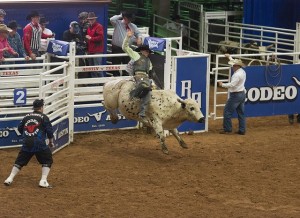make or break, sink or swim, the moment of truth 
[Dutch phrase of the week]
[het is er-op of er-on-der]
 Literally “erop of eronder” translates as “on it (/on top) or under it (/underneath)”. It can be used in that translation, for example to determine where an object needs to be placed. Without context, when you say something is “erop of eronder”, you are saying that this is the moment of truth, you will fail or succeed, make or break.
Literally “erop of eronder” translates as “on it (/on top) or under it (/underneath)”. It can be used in that translation, for example to determine where an object needs to be placed. Without context, when you say something is “erop of eronder”, you are saying that this is the moment of truth, you will fail or succeed, make or break.
Examples:
– “Dit is de laatste kans om een medaille te winnen, het is erop of eronder voor Sven Kramer.”
(“This is the last chance to win a medal, it’s make or break for Sven Kramer.”)
– “Het is erop of eronder jongens, ik verwacht van iedereen een maximale inzet!”
(“It’s sink or swim time boys, I expect everbody to give everything they have! Lit. “… I expect a maximum effort from everybody.”)
– “Moet je zo dadelijk je eindpresentatie geven?” – “Ja, het is erop of eronder…”
(“Is it time for your final presentation” – “Yeah, the moment of truth…” Lit. “Do you have to give your final presentation in a moment?”)
– “Het was erop of eronder voor Ajax afgelopen zondag, want FC Twente had aan één punt genoeg…”
(“It was make or break time for Ajax last Sunday, as F.C. Twente only needed one point…”)
Expressions:
– “Nu of nooit”: now or never.
– “Het moment van de waarheid”: the moment of truth.
Related words:
– Erop: on it, on top, on them [adverb].
– Eronder: under it, underneath, under them [adverb].
